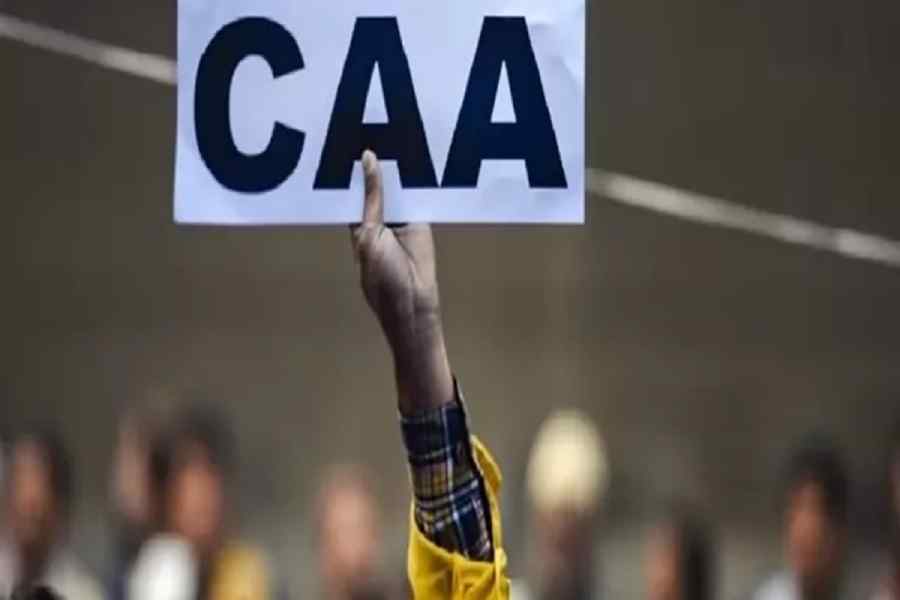An Assam-based organisation has written to the Centre requesting relaxation/addition to the CAA rules notified on March 11 so that those who came from Bangladesh due to persecution “could easily apply” for citizenship” in India.
The Silchar-based Citizens’ Right Protection Co-ordination Committee (CRPCC), Assam, a conglomerate of 42 social organisations formed in 2015 when the process for receiving applications began for inclusion in the National Register of Citizens (NRC), has in its three-page representation to the Union ministry of home affairs also requested the MHA to complete the process of granting the citizenship to the applicants within 30 days. The representation is addressed to the MHA secretary.
The CAA, passed in 2019, expedites the process for granting Indian citizenship to persecuted non-Muslims from Bangladesh, Pakistan and Afghanistan who entered India without papers before December 31, 2014.
Congratulating the Centre for “notifying the long-pending Citizenship Amendment Rules 2024” on March 21, the CRPCC representation said some clauses “require relaxation/addition” so that “the partition victim people of Bangladesh could easily apply for getting” citizenship of the country.
Partition here means partition of Pakistan which led to the creation of neighbouring Bangladesh in 1971.
The organisation pointed out that “none of the victim residents” had applied for citizenship under the CAA Rules 2024 till Saturday even though a “substantial number of people had left Bangladesh because of security reasons etc”.
The MHA had launched a portal on Tuesday for applicants for acquiring citizenship under CAA, a day after it notified the rules.
The CRPCC cited Rule 3 of the Citizenship Amendment Rules 2024, where “any one of the nine government documents mentioned in the Schedule-1A, are required to be submitted, to prove that he (or she) was a resident of Bangladesh.”
According to the CRPCC, it was “anticipated” the victims who left Bangladesh may fail “to produce any government document because they left the country in the dark of night with only” the clothes they wore.
The organisation then suggested they may be allowed citizenship “on the basis of any government/autonomous body documents and/or any other document proving their stay in India before December 31, 2014”.
The CRPCC representation assumes importance because protests are being staged against CAA, especially in the Brahmaputra Valley, opposing the contentious legislation, fearing a threat to Assam, its culture and language by infiltrators, especially from Bangladesh. Even Opposition parties have decided to make the CAA its key poll plank in the upcoming general elections.
The BJP-led state government, however, has been asserting there will be very few applicants, in the range of three to six lakh, in the state and only by those who failed to make the NRC, a register of Indian citizens.
The CRPCC also urged the MHA to ensure any proceeding “on and from the date of commencement of the Citizenship Amendment Act 2019” pending against a person under Section 3 of the CAA, including doubtful voters, “in respect of illegal migration or citizenship, shall stand abated (stopped/withdrawn) on conferment of citizenship to him”.
The organisation also said no applicant be “deprived” of his/her rights and privileges, which he/she “was entitled on the date of receipt of his application on the ground of making such application” while urging the Centre to “pass necessary orders” so that the right and privileges of applicants “shall not be jeopardised”.











